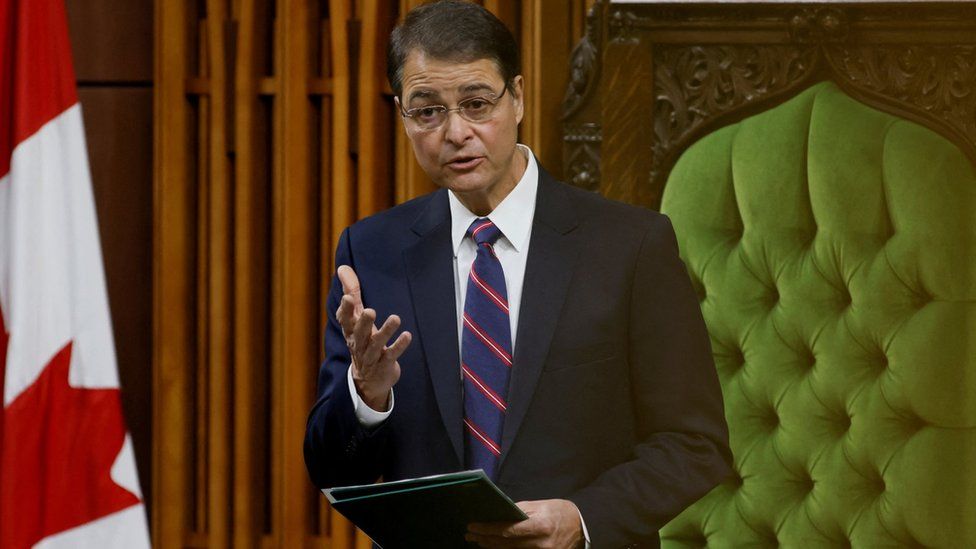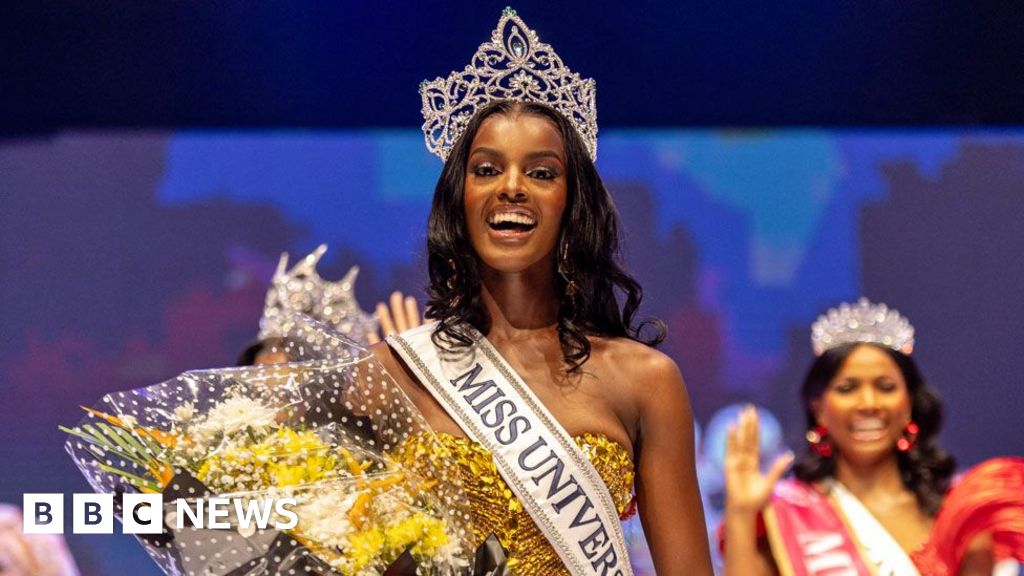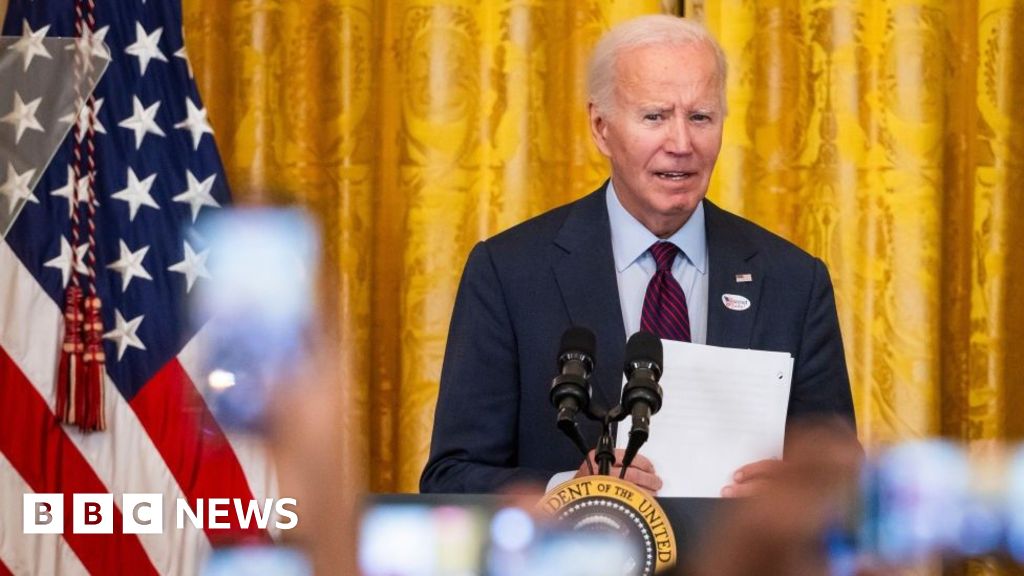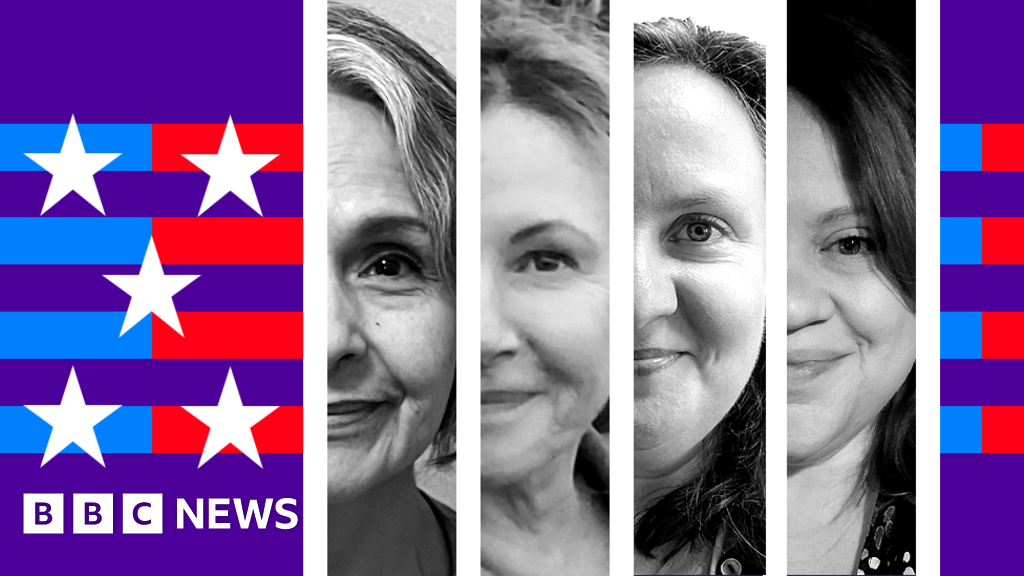ARTICLE AD BOX
 Image source, Reuters
Image source, Reuters
Anthony Rota said he accepted "full responsibility for my actions"
The speaker of Canada's House of Commons, Anthony Rota, has apologised for praising a Ukrainian man who served in a Nazi unit during World War Two.
Yaroslav Hunka, 98, got a standing ovation in parliament after Mr Rota said he was a "hero" during a visit by Ukrainian President Volodymyr Zelensky.
Canadian Jewish group CIJA said it was "deeply troubled" that a veteran of a Nazi division that participated in the genocide of Jews had been celebrated.
It said this should never happen again.
Prime Minister Justin Trudeau was with Mr Zelensky in parliament at the time.
Thousands of Ukrainians fought on the German side during the war, but millions more served in the Soviet Red Army.
In a statement, Mr Rota said that on 22 September "in my remarks following the address of the president of Ukraine, I recognised an individual in the gallery.
"I have subsequently become aware of more information which causes me to regret my decision to do so."
Mr Rota said that "no one, including fellow parliamentarians and the Ukraine delegation, was aware of my intention or of my remarks before I delivered them. This initiative was entirely my own, the individual in question being from my riding [district] and having been brought to my attention."
"I particularly want to extend my deepest apologies to Jewish communities in Canada and around the world. I accept full responsibility for my actions," the speaker said.
Responding to his statement, CIJA said: "We appreciate the apology issued... Proper vetting is imperative to ensure such an unacceptable incident does not occur again."
Image source, Getty Images
Image caption,Ukrainian President Volodymyr Zelensky (left) and Canadian PM Justin Trudeau (right) acknowledged the war veteran
Meanwhile, Canada's opposition Conservative leader Pierre Poilievre said Prime Minister Trudeau was also responsible for the incident, calling for him to apologise,
But the office of Mr Trudeau, who heads the Liberal party, said the decision to invite Mr Hunka had been made by the speaker's office alone, and the apology "was the right thing to do".
At one point, Mr Rota pointed to Mr Hunka who sat in the gallery, saying the man was "a Ukrainian hero, a Canadian hero, and we thank him for all his service".
Those present in the building responded with applause.
During World War Two, Mr Hunka served in the 14th Waffen-SS Grenadier Division, also known as the Galicia Division - a voluntary unit made up mostly of ethnic Ukrainians under Nazi command.
Division members are accused of killing Polish and Jewish civilians, although the unit has not been found guilty of any war crimes by a tribunal.
The unit was renamed the First Ukrainian Division before surrendering to the Western Allies in 1945.
Dominique Arel, chair of Ukrainian studies at the University of Ottawa, told CBC News that the division Mr Hunka was part of had attracted thousands of Ukrainian volunteers, many joining with hopes they could achieve Ukrainian independence.

 1 year ago
13
1 year ago
13








 English (US)
English (US)